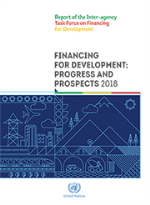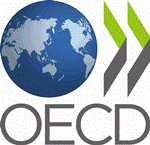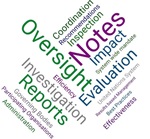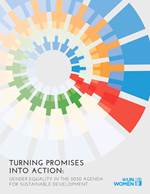Social Watch News
Published on Mon, 2018-04-16 00:00
The Indian state government of Tamil Nadu this year presented a Gender Budget Statement as part of the annual budget documents, quantifying the allocations that will benefit women during this fiscal year. Finance Secretary K. Shanmugam said it is the first time such an exercise has been undertaken. Kamakshi Sundaramurthy, senior researcher of Social Watch Tamil Nadu, said the gender budget does not address the needs of sub-categories among women, such as those from among the minorities, Dalits and sub-castes. “These women need better education, healthcare and hostel facilities. Employment is also critical for their empowerment. They need the gender budget more than any of us but remain excluded,” Ms. Sundaramurthy said. |
|
Source: . Published on Mon, 2018-04-16 00:00
For the first time the State government this year presented a Gender Budget Statement as part of the annual budget documents, quantifying the allocations that will benefit women during this fiscal. The statement appears as the last chapter in the appendices to the Budget documents published by the Finance Department and tabled in the Assembly on March 15. The Budget speech by Finance Minister O. Panneerselvam did not mention it. |
Published on Fri, 2018-04-13 00:00
Short-termism impedes progress of hundreds of millions of people. The prospects of around 800 million of the world’s poorest people remain dire. The global economy is experiencing a moderate upturn, and momentum around sustainable investing is growing, the UN said today. But the vast majority of investment is still short-term oriented and commitments by the international community to create sustainable economies are not being met. |
Published on Thu, 2018-04-12 00:00
While Public-Private Partnerships (PPPs) have the potential to achieve faster policy implementation and ensure good maintenance standards, an audit of such projects in the European Union shows "widespread shortcomings and limited benefits", says a Special Report (09/2018) by the EU Court of Auditors. The report of the Luxembourg-based EU Court of Auditors, dated 20 March, became available here last week. |
Published on Wed, 2018-04-11 14:43
Figures released on 10 April by the Federal Council show that Switzerland has clearly missed its own development assistance target. The country is thus moving further away from the international goal of allocating 0.7% of gross national income to development funding. While this allocation remained just about stable across OECD countries, in Switzerland it dropped from 0.53% to 0.46%. A hefty 14% contraction. |
|
Source: . Published on Tue, 2018-04-10 00:00
Así lo afirma el uruguayo Roberto Bissio, coordinador de la red Social Watch, quien tiene serios reparos sobre las alianzas público privadas como modelo de desarrollo en América Latina. |
Published on Thu, 2018-03-22 15:11
The United Nations and system organizations should engage with donors in a dialogue at the strategic level for the adoption of donor reporting templates and accommodating the common information needs, demands and requirements of donors and the regulatory frameworks and capacities of the organizations. This is one of the main recommendations highlighted in a new report by the Joint Inspection Unit (JIU), an independent external oversight body of the United Nations system, reviewing donor reporting requirements across the UN system. The JIU review focused on the United Nations system organizations that have the highest number of donor reports and on the 16 major donors to the United Nations system, including the European Commission. |
Published on Tue, 2018-03-20 17:39
Most farms in developing and least developed countries are small, generally plots of less than two hectares of land. Smallholder farmers manage over 80% of the world’s estimated 500 million small farms and provide over 80% of the food consumed in Asia and sub-Saharan Africa, contributing significantly to poverty reduction and food security. As much as 75% of global seed diversity in staple food crops is held and actively used by smallholder farms. However, despite their vital role in the global agricultural community, the participation and priorities of smallholder farmers – most of whom are women – are often neglected. Effective mechanisms giving smallholder farmers a voice in policymaking are imperative to address their needs and interests, to promote the conservation and sustainable use of plant genetic resources and more broadly, to ensure food security. |
|
Published on Fri, 2018-03-16 13:51
» |
Published on Fri, 2018-03-16 11:30
On February 14, 2018, UN Women released its SDG Monitoring Report, Turning Promises Into Action, which assesses what is needed to achieve the goals of the 2030 Agenda for Sustainable Development, in particular in regards to gender equality. In line with the report’s focus, the 62nd session of the Commission on the Status of Women (CSW62) addresses the challenges rural women and girls face in achieving gender equality and empowerment. Despite a number of advances globally, progress for women and girls remains slow, and even where it has been made it is often highly uneven. While issues such as stagnant economic growth, rapid environmental degradation, unsustainable land use practices, and the dynamics of migration and urbanization impact women in both the global North and South, they affect rural women in particular. |
SUSCRIBE TO OUR NEWSLETTER










